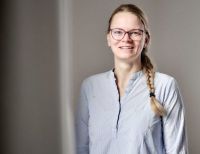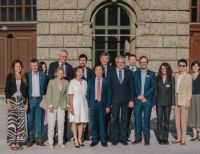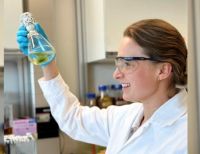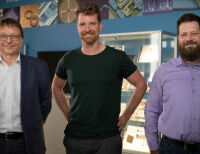This was also the first time the event included comprehensive reporting on various social media channels to complement the hybrid format.
Innovative ideas about health and wellbeing
The focus on health furthered ETH Week's original idea of developing solutions to the United Nations (UN) Sustainable Development Goals. Goal 3 is to ensure healthy lives and promote wellbeing for all at all ages.
“Health is one of humanity's most important issues and encompasses many levels,” says Margrit Leuthold. She participated in the Future Health Technologies programme at the Singapore ETH Centre SEC, conceptualising the ideas and content of the event together with Wolfgang Langhans, professor emeritus at D-HEST. “In addition to the personal level – genes and psychosocial factors – there are also expert and social levels. Health is an important economic factor.” Global aspects are also important, including the health effects of the environment and climate change.
To help students learn as much as possible about health as quickly as possible, excursions to health sector companies and organisations were on the agenda last Monday, followed by a knowledge fair with talks by experts on Tuesday. To help them combine these inputs and develop ideas for resolving notable health problems, the teams were introduced to design thinking on Wednesday, a method of structuring the innovation process. Experienced coaches were on hand to assist the teams throughout the entire week.
Time pressure and complex team process
The amount of information and the time pressure were not the only challenges the students faced. “People in different degree courses think differently,” Michelangelo Gautschi says frankly. He will shortly finish his Master's degree in Health Sciences and Technology and is personally affected by the topic. He lost a leg in an accident and because of that, his team – team 2, “BETHER” – decided to develop a solution for more comfortable prosthetics.
“It's a highly iterative process,” says Jonas Heitmayer, also completing his Master's degree at D-HEST. “To some extent, you talk past each other and a lot of work is scrapped.”
















